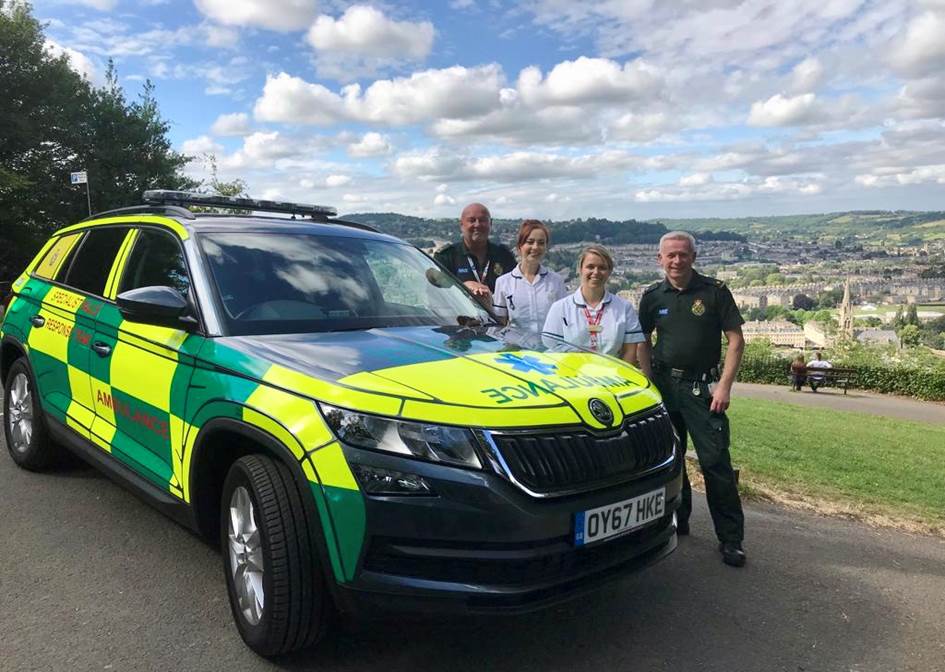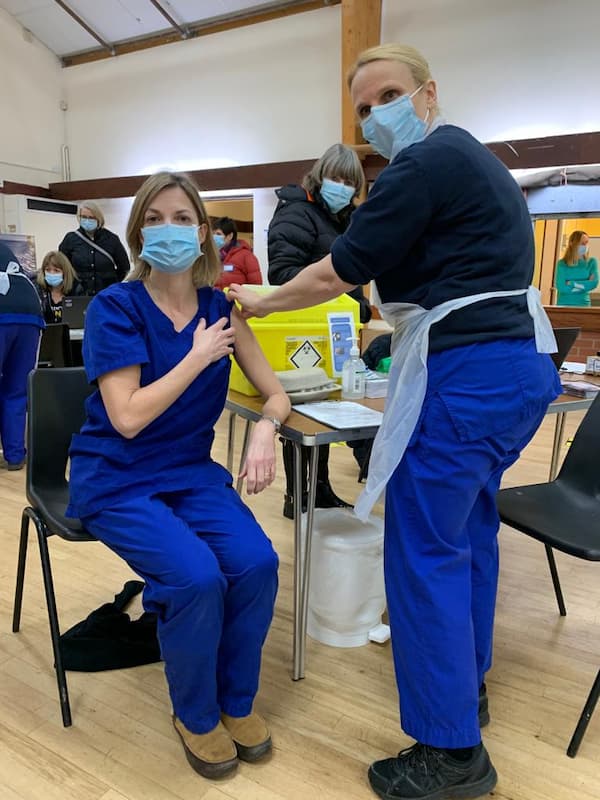
Working together to fight Covid 19
During 2020 and 2021 the members of BSW Together rose to the challenge of rolling out the biggest vaccination programme in history across Bath and North East Somerset, Swindon and Wiltshire (BSW) in a coordinated effort involving thousands of hard working and dedicated colleagues.
Partners in our hospitals, GP surgeries, local authorities, private providers and the voluntary sector worked around the clock to ensure vaccines were delivered to target groups across the area in a timely fashion.
The vaccine roll out programme also saw support from local fire crews, military personnel and a huge number of volunteers.
The vaccination drive has aimed to deliver vaccines to those most in need and also to encourage those members of our communities who have concerns about having the vaccine to also come forward.
As part of our ongoing work to engage with members of our diverse communities across BSW, we also held a well-attended online question and answer session to help provide reassurance on the coronavirus vaccine to concerned people from the region’s black, Asian and minority ethnic communities.
Gill May, Head of Nursing and Quality at BSW Partnership said the vaccine programme has been able to achieve so much thanks to the support of multiple partners working closely together.
“Our vaccine programme is a mammoth logistical operation which has seen fantastic support from all of our partners across the BSW Partnership who have worked so hard to make it a success.”
Getting people home from hospital
The Home First scheme was launched by the Royal United Hospitals Bath NHS Foundation Trust in 2017 and is a fantastic example of how a joint approach to health and care can have a big impact on patient’s lives.
The scheme is run by a number of health and care organisations working together, as part of BSW Together, including the RUH Bath NHS Foundation Trust, Wiltshire Council, Wiltshire Health & Care, Medvivo and Virgin Care as well as local organisations Age UK Bath, Somerset Partnership NHS Foundation Trust and Somerset County Council.
It aims to reduce the length of time spent in hospital by patients who are clinically well enough to return home, but who might need extra support to help them do so.
Patients are only discharged when the ward team have completed the necessary checks to make sure they are medically-fit.
Once at home, the patient is met by a therapist and reablement worker who immediately provide a detailed assessment and organise support for up to six weeks to help the patient regain the skills and confidence to live at home independently – rather than stay in hospital.
Home First aims to minimise hospital stays and maximise independence and has been supporting up to 25 patients every week, including weekends, to return home and get life back to normal.
Patient John Over learned about the Home First service when a member of the dedicated team visited him to tell him he no longer needed hospital care. The team worked with him to get him home within 24 hours of being referred to the service.
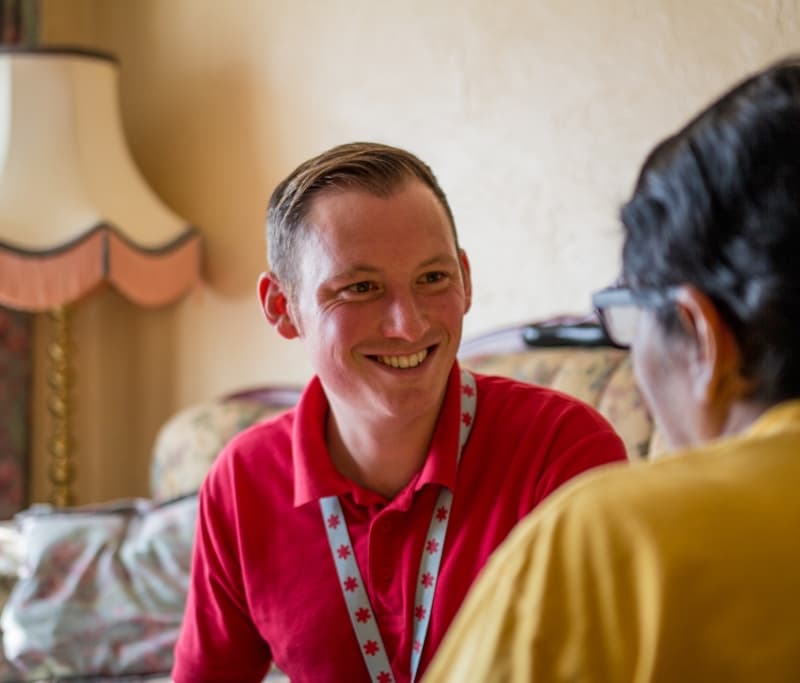
“On the day that I returned home from hospital a physiotherapist and occupational therapist visited to assess what extra assistance might be needed,” John said. “They were professional, courteous and all of the additional equipment needed was in my home by the end of the day.
“Visits from a district nurse were also organised on that first day. I was very impressed. The service was rather like a one stop shop, with the team able to assess and organise all of the services that they felt I would need.”
Voluntary sector working hand in hand with health and care to help vulnerable during lockdowns
Voluntary organisations and community groups played a crucial role in supporting shielded and at risk people during the country wide covid-19 lockdowns, providing invaluable support to the most vulnerable members of our communities.
In Bath and North East Somerset, voluntary sector group 3SG in partnership with Virgin Care, B&NES Council and BSW CCG set up the Compassionate Community Hub reaching out to the vulnerable and isolated to provide help with food deliveries, medicine, urgent housing, mental health and wellbeing and money matters.
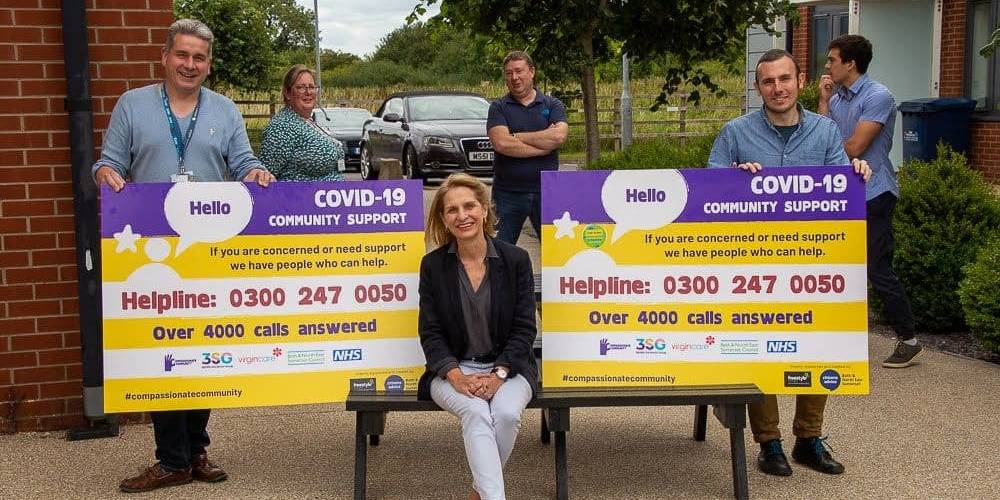
3SG worked tirelessly to recruit and manage 2,500 volunteers and over 1,100 tasks have been completed supporting the most vulnerable to help with food shopping, collection of medicines and befriending calls.
Voluntary Action Swindon has been carrying out similar work, joining forces with Swindon Borough Council to match volunteers with people in need to assist with tasks such as collecting shopping or just offering a sympathetic ear to someone in need.
In Wiltshire, the Wiltshire Wellbeing Hub, set up by Wiltshire Council as a response to coronavirus, has delivered over 1,000 food parcels to vulnerable residents.
Cllr Laura Mayes, Cabinet member for Adult Social Care, Public Health and Public Protection at Wiltshire Council said the Wiltshire Wellbeing Hub has been a vital tool in helping vulnerable residents.
Acute Hospitals Alliance – hospitals working together
The Acute Hospitals Alliance sees hospitals in Bath, Swindon and Salisbury working together to ensure access to beds and treatment across the area.
The Royal United Hospitals Bath NHS Foundation Trust, Great Western Hospitals NHS Foundation Trust in Swindon and Salisbury NHS Foundation Trust work together as part of the BSW Partnership Acute Hospitals Alliance.
They and have been actively looking at how they can make the most of their available beds for patients and support each other during busy periods and during the current Covid-19 pandemic.
They have also been working together on a number of projects designed to bring the hospitals closer together through initiatives such as using the same financial systems for payroll and purchasing, joint electronic patient information and the development of a single waiting list for some operations to ensure equity of access across BSW.
Ben Irvine, BSW Together Programme Director for the Acute Hospitals Alliance said the alliance plays a central role in the way acute services work together.
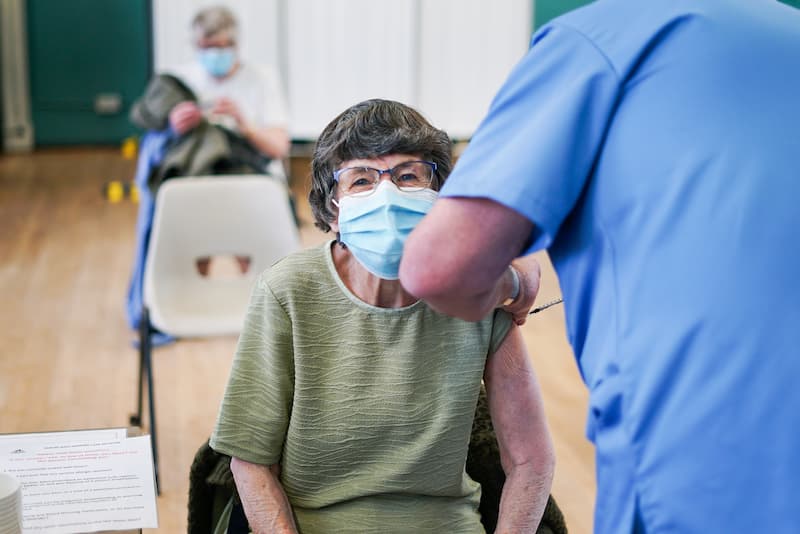
“Our Acute Hospitals Alliance will be crucial in terms of addressing capacity issues and pressure on beds this winter. It will also play a central role in reducing variations in hospital services across BSW and becoming more efficient through shared approaches in areas such as financial systems and patient records.”
Working together to offer support for people affected by long Covid
BSW Together member organisations are working collaboratively to provide dedicated support for people affected by a condition known as long Covid.
The condition, which is thought to affect more than 60,000 people in the UK, can cause continuing fatigue, 'brain fog', breathlessness and pain.
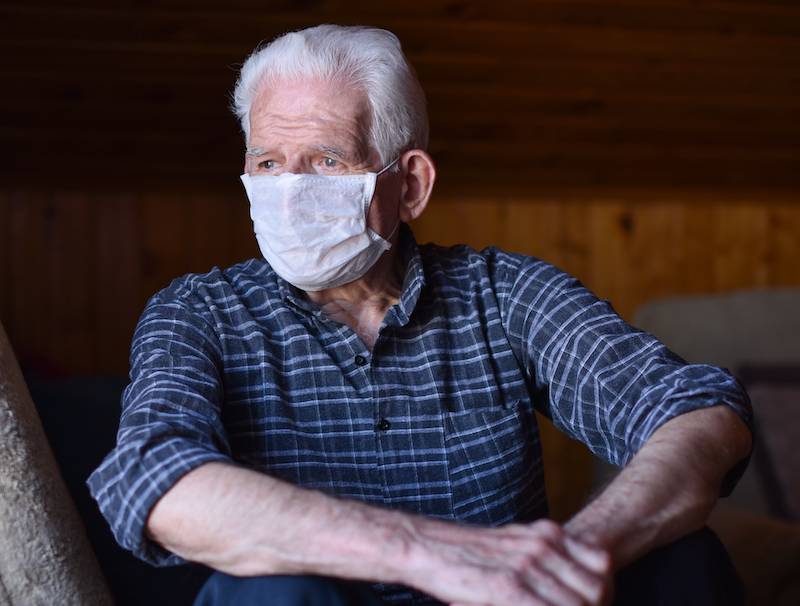
The innovative service is available thanks to joint working by a number of health and care teams across BSW including physiotherapists, occupational therapists and respiratory nurses.
Over 115 patients across BSW have now been referred to the new service.
The service is designed to help people who still have symptoms related to a Covid infection after 12 weeks. The aim of the clinic is to identify what symptoms a person is experiencing and how this is affecting them day to day.
The service is designed to help people who still have symptoms related to a Covid infection after 12 weeks. The aim of the clinic is to identify what symptoms a person is experiencing and how this is affecting them day to day.
The pathway will also cover self-help options with input from the third sector and from those who have been affected by the condition.
Details of how some people are affected by Long Covid are still emerging, but research suggests around one in five people who test positive for Covid-19 have symptoms for five weeks or longer. For around one in ten people, they last 12 weeks or longer.
These long-term effects are often reported by people who didn’t need to go to hospital during the acute phase of Covid.
Falls rapid response team: Helping people who have suffered a fall avoid a visit to hospital
The Falls Rapid Response Team helps older people who have fallen over at home receive treatment and avoid a visit to hospital.
The team includes a specialist paramedic and an occupational therapist who will respond to up to four patients per day if they have contacted the emergency services for assistance after a fall. The team will help the person get comfortable, carry out a home-based falls risk assessment and recommend any necessary interventions that could help prevent future falls
The initiative is a collaboration between Bath and North east Somerset, Swindon and Wiltshire CCG (BSW CCG), South Western Ambulance Service NHS Foundation Trust (SWASFT), Virgin Care and the Royal United Hospitals NHS Trust Bath.
This service aims to support people’s independence and reduce the risk of them falling over again at home and operates between 8 a.m. and 6 p.m, seven days per week.
The falls team have a variety of community-based and hospital services they can refer patients on to, depending on what the patient needs.
